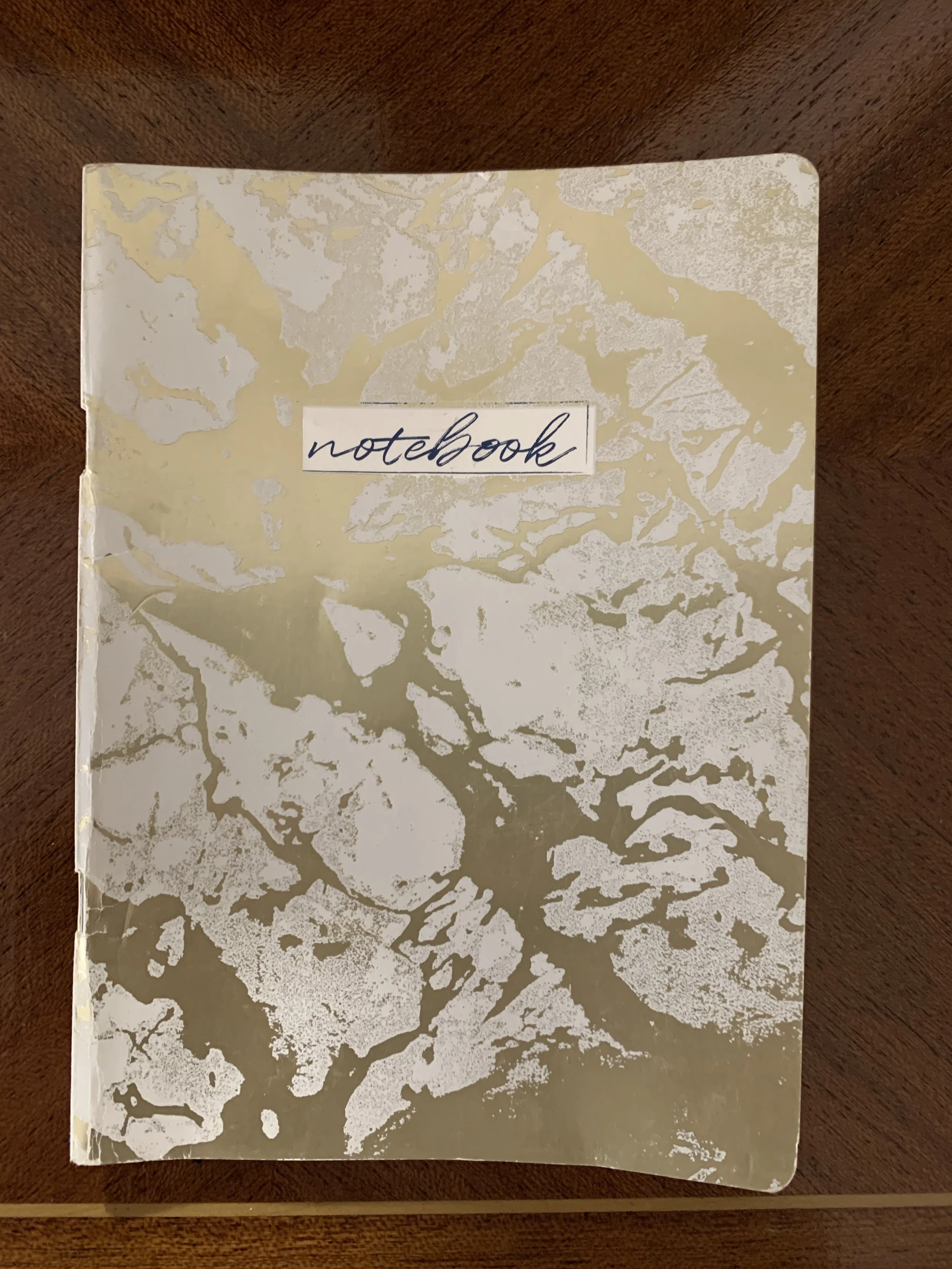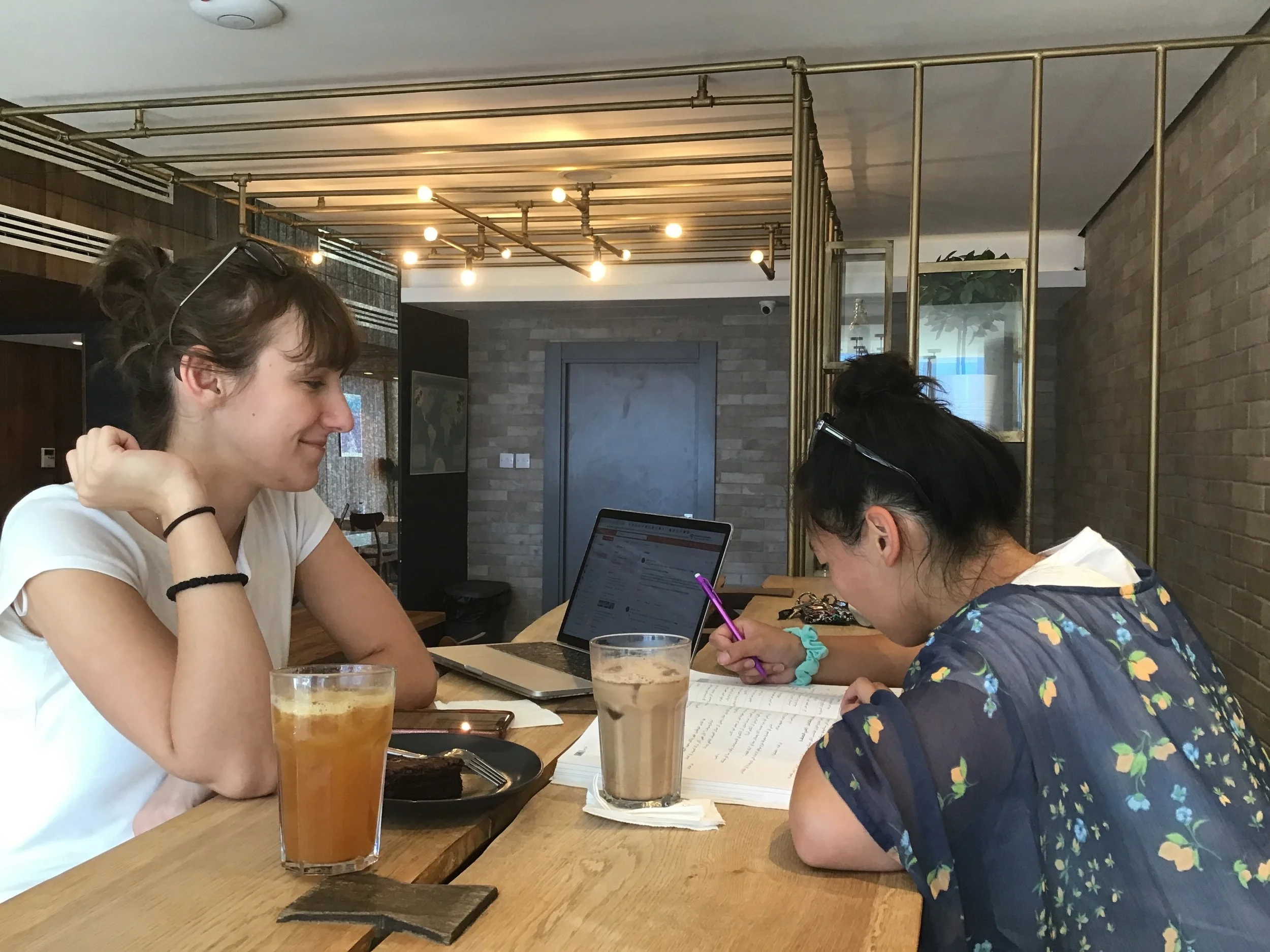"Arabic Growth: How to Understand At Least 50% of Spoken Arabic in Just 3 Weeks" by Laura G.
Marhaba!
At the time of writing this blog, I have spent a little more than three weeks in Jordan. In this short span of time, I was able to improve my comprehension of Spoken Arabic (NOT Formal Arabic - Fusha) immensely with a very simple method. I call it the “Never Again” Method.
The basic premise is this: Every time you hear a new word/phrase/verb in Spoken Arabic, you write it down (and ask for its meaning if you can). Then, at the end of the day, add all the new words you learned into a flashcard app on your phone and study/review them daily.
That’s it.
NEVER AGAIN will you encounter that same word in the future and be confused. You know it now, and you will recognize it! Trust me, it is a truly fascinating experience to hear someone use a word/phrase that you learned only the day before! It’s like seeing your progress firsthand. Yesterday, you wouldn’t have understood them, but today you are a new person with new words under your belt!
Here’s an example of a page inside my notebook:
Although every language has tens of thousands of words, the fact is that we only use the same 200-1000 words on a daily basis. If we can master these critical words, verbs, and phrases, then we will be able to understand most of what is being said!
My experience with this method has been revolutionary, but I also understand that it might not work for everyone. The best I can do is recommend what has worked for me, and perhaps others can benefit from it or tweak it to fit their own learning styles and preferences.
This is a bit of a long blog, but the main point is what I have already stated above. Below, I will list more details and steps for how to maximize efficiency with this method.
The NEVER AGAIN METHOD in FOUR STEPS
Step 1: Prepare
Get ready, be passionate, & be consistent
It is a step-by-step journey. You might be shy to ask people what the meaning of a certain word is, or maybe you will get tired adding all the words to your flashcard set. It can be difficult at times, but it is rewarding. Trust the process.
Buy (or bring from America) a small, thin notebook
You can write down new words on your smartphone, but I honestly prefer having a paper notebook. Your phone can be distracting and having low battery can discourage you from taking down new words. Having a designated notebook or notepad puts all your words in one place. It’s easy to pull out, and with the notebook in one hand and pencil in the other, you are ready to take down many words consecutively and really focus. It’s also nice to see your progress across pages overtime as you flip through old words.
Download your favorite flashcard app or buy flashcards
I do recommend using your phone, however, for reviewing the words. I have used the app, Quizlet, and its flashcard feature. Others like the app, Anki, but I did not like it much. You can also do paper flashcards, but I wouldn’t recommend it. If it's on your phone, then you can review the words anywhere, and everywhere: during a random short break, on the Uber ride home, between classes, on a long bus ride to an excursion. It’s convenient and easy.
Step 2: Recognize Spoken Arabic Verb Conjugations & Compare with Fusha
Understand the basic patterns of past, present, and future verbs
In Spoken Arabic, verbs are conjugated very similarly to Fusha, but also very differently. A “ب” is attached to verbs in the present tense, and the future marker “رح” is used instead of “س” for future tense. Pronunciation is also a bit different. My advice is to ask your Arabic teacher in the program to go over the basics of the conjugations with you during office hours, one day early in the program. The key here is NOT to be an expert and know conjugations perfectly, but to understand how verbs change based on the subjects so you can recognize it when it is being spoken.
Want to go above and beyond? Choose one important verb every day or every other day and write down all the conjugations in the past and present (and commands). Ask your Arabic teacher if you did it correctly (and you can even ask for pronunciation advice.)
Step 3: Get Words!
Aim for at least 5-20 new words a day. Some days, I get 40 words, which can be a little overwhelming. Work slowly and steadily and be consistent. That is the key.
There are a lot of places to hear new words! Here are some of the ones I have used:
Yourself: Whenever you try to speak Arabic, you will find that there are things you need to say, but don’t know how to. Maybe during your Uber, you wished you could have said to the driver “Keep the Change” but you didn’t know how? Well, you just got a new phrase you need to learn! Write it down in English and ask your Arabic teacher, Amideast advisor, host family, or any native speaker later on! Never again will you have that problem! Translation: "خلي الباقي الك"
Your host family: When your host family says something you don’t understand (which could be everything they say haha), don’t be afraid to ask them to repeat the whole sentence or a specific word. Write it down!
Arabic Class: I recommend you take the Jordanian Arabic Course, but even in regular Fusha/Formal Arabic class, don’t be afraid to ask your teacher the meaning of a word they said that you didn’t understand. Make sure to specifically ask for the word in Spoken Arabic too, not just Fusha.
Podcasts: Like other blogs have mentioned, I have found “Learning Levantine Arabic with Livi” and “El Bulbul” to be great Spoken Arabic options, but they are a bit intermediate/advanced. I would recommend getting more spoken Arabic experience first before trying them out.
Cultural Activities: Take a dabke dance class at Jadal Institute or a Palestinian Embroidery class at Deewan Institute! There is so much to do. I learned a lot of new words from the embroidery (التطريز) class, just by listening, asking, and writing down when I didn’t understand.
6. Talk with Jordanians: Find language partners on ConversationExchange.com or attend Language Exchange events like “Bla Bla Exchange” in Amman. We just got our Amideast language partners (at the end of the third week). I already met with two other language partners I found online who would like to practice their English. For safety purposes, I chose only female partners and had our first meetings in very public spaces (ie. mall, cafe, etc.). You can also choose to only meet over Zoom or online chat. My advice: during language exchanges, make sure that you are doing most of the talking when it's the language you're practicing. For example, when we are speaking English, I let the language partner talk most of the time while I mainly ask short questions. When it's Spoken Arabic time, I want to be the one speaking most of the time for practice. If you want to focus more on comprehension rather than speaking, then you can let them speak for equal time in Arabic.
7. Spoken Arabic Dictionary: I personally use this online Lebanese dictionary: https://www.arabicwords.site/
The pronunciation differs slightly from the Jordanian dialect, but I have found the words to be relatively the same. It has been an extremely useful resource for me when looking up words I wrote down to confirm the spelling and meaning. I have also been able to look up words as well to find the English word translation to Spoken Arabic.
Step 4: Review, Review, Review
Every day, review, review, review. I separated my new words by weeks. So, I have one set of flashcards of new words from week 1, one from week 2, and one from week 3. Every day, review the words from the current week. Every other day or every 2-3 days, review the previous weeks. Or do what works for you.
The key is consistency. It takes a lot longer to make the online flashcards than you might think. This method is simple in principle, but it does take effort and dedication to be consistent, add the words, and not give up when you feel discouraged.
Try to use some of the new words or phrases when speaking with others!
That’s it!
A final note: As I said in my introduction post, I am Lebanese originally, and I did grow up hearing the Levantine Dialect in the home for a little bit, so I will not deny that I have an initial advantage in comprehension and speaking spoken Arabic. However, I do not consider myself to be a heritage speaker, especially because we spoke English mainly at home. Before coming to Jordan, I really knew very little except for the very, very basics such as greetings, food, and main verbs like talking, eating, walking, etc. When I arrived in Jordan, I was surprised to find that I could understand less than 20% of what was being said, even with my background. Now, I understand at least 67-75% of what is spoken to me, which is a huge jump. Therefore, I put at least 50% in the title because I understand that not everyone has my background, but I promise, even as a non-heritage speaker, you can and will see promising results.
It’s simple. If you study the words you hear every day, then you will be able to understand most of the daily conversations. The Never Again method puts you in a position where you refuse to be the same person you were yesterday. You force yourself to overcome your limitations. Every time you find yourself confused, in doubt, or regretful, the Never Again method ensures that you won’t ever feel that way about that specific word, phrase, or situation ever again.
You need to take your learning into your own hands, and you have to really want it. You are the deciding factor for whether or not you leave Jordan with much better Arabic skills or not, and it's something I have to remind myself of everyday.
Good luck to you all! I hope this method helps some of you, and I hope to update you on my Arabic growth journey as I continue this method during my time in Jordan.
Until next time!
Laura G. is a student from USC participating on Amideast’s Area and Arabic Language Studies program in Amman, Jordan in Spring 2023.






